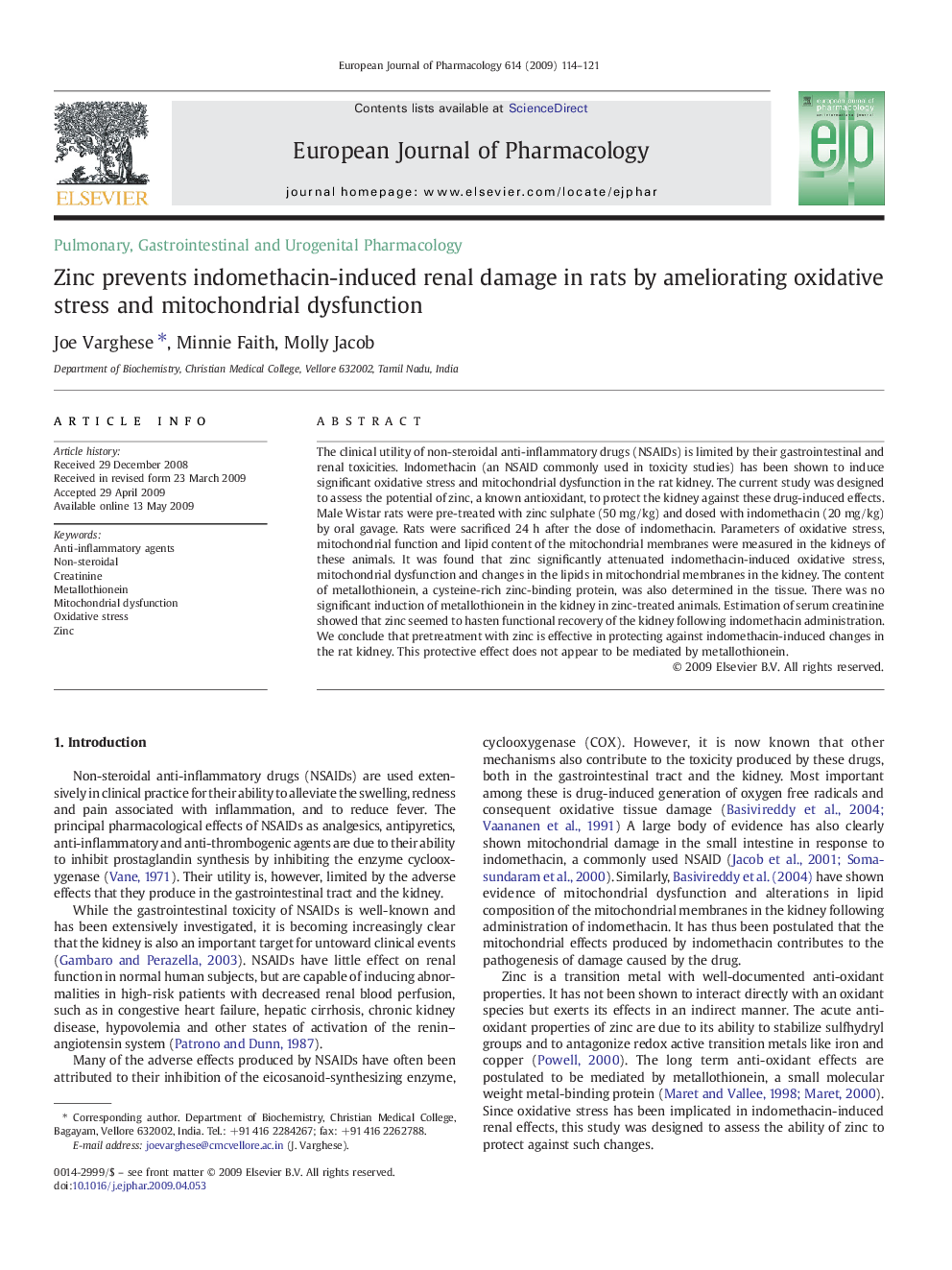| Article ID | Journal | Published Year | Pages | File Type |
|---|---|---|---|---|
| 5830631 | European Journal of Pharmacology | 2009 | 8 Pages |
Abstract
The clinical utility of non-steroidal anti-inflammatory drugs (NSAIDs) is limited by their gastrointestinal and renal toxicities. Indomethacin (an NSAID commonly used in toxicity studies) has been shown to induce significant oxidative stress and mitochondrial dysfunction in the rat kidney. The current study was designed to assess the potential of zinc, a known antioxidant, to protect the kidney against these drug-induced effects. Male Wistar rats were pre-treated with zinc sulphate (50Â mg/kg) and dosed with indomethacin (20Â mg/kg) by oral gavage. Rats were sacrificed 24Â h after the dose of indomethacin. Parameters of oxidative stress, mitochondrial function and lipid content of the mitochondrial membranes were measured in the kidneys of these animals. It was found that zinc significantly attenuated indomethacin-induced oxidative stress, mitochondrial dysfunction and changes in the lipids in mitochondrial membranes in the kidney. The content of metallothionein, a cysteine-rich zinc-binding protein, was also determined in the tissue. There was no significant induction of metallothionein in the kidney in zinc-treated animals. Estimation of serum creatinine showed that zinc seemed to hasten functional recovery of the kidney following indomethacin administration. We conclude that pretreatment with zinc is effective in protecting against indomethacin-induced changes in the rat kidney. This protective effect does not appear to be mediated by metallothionein.
Keywords
Related Topics
Life Sciences
Neuroscience
Cellular and Molecular Neuroscience
Authors
Joe Varghese, Minnie Faith, Molly Jacob,
